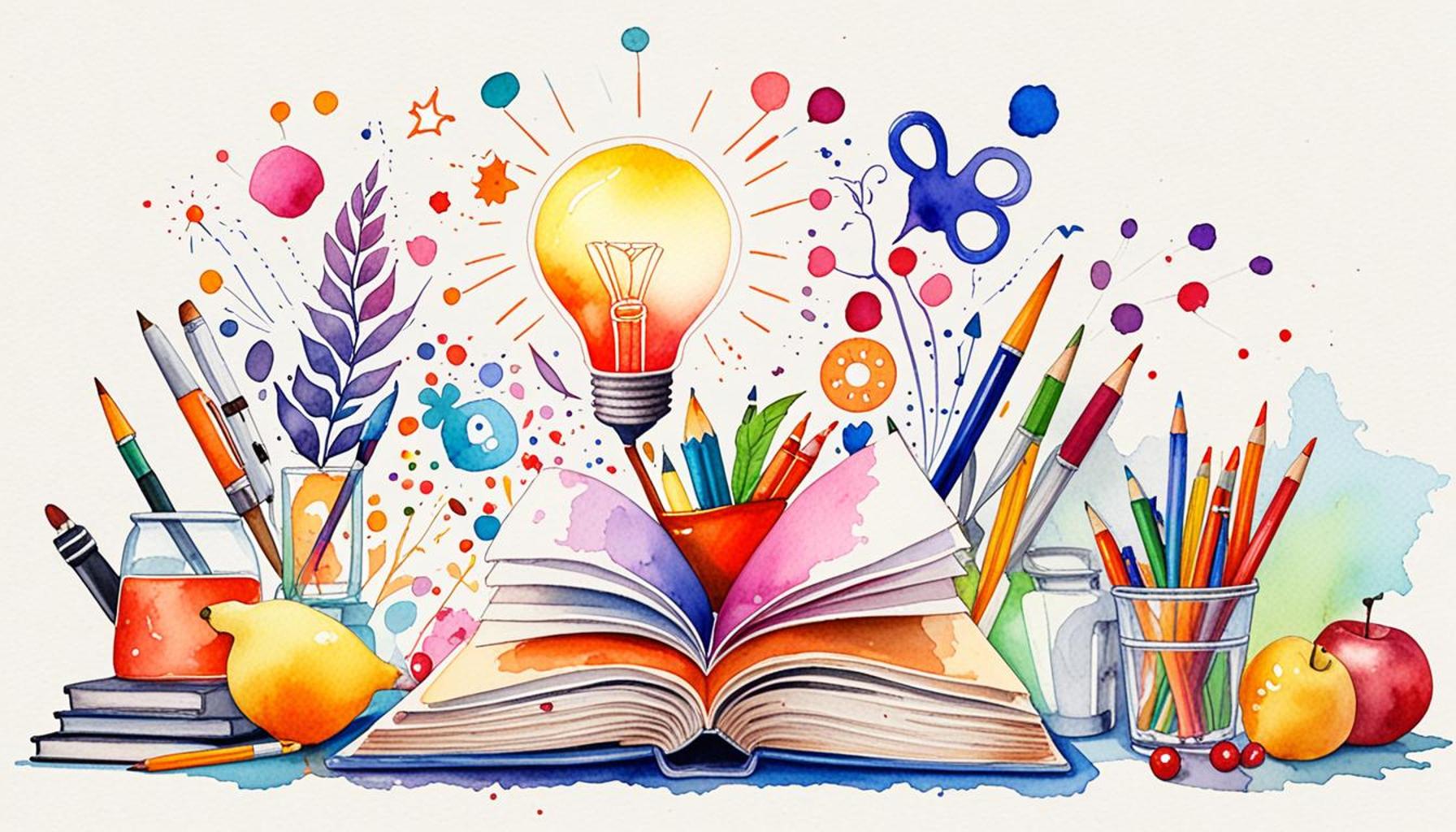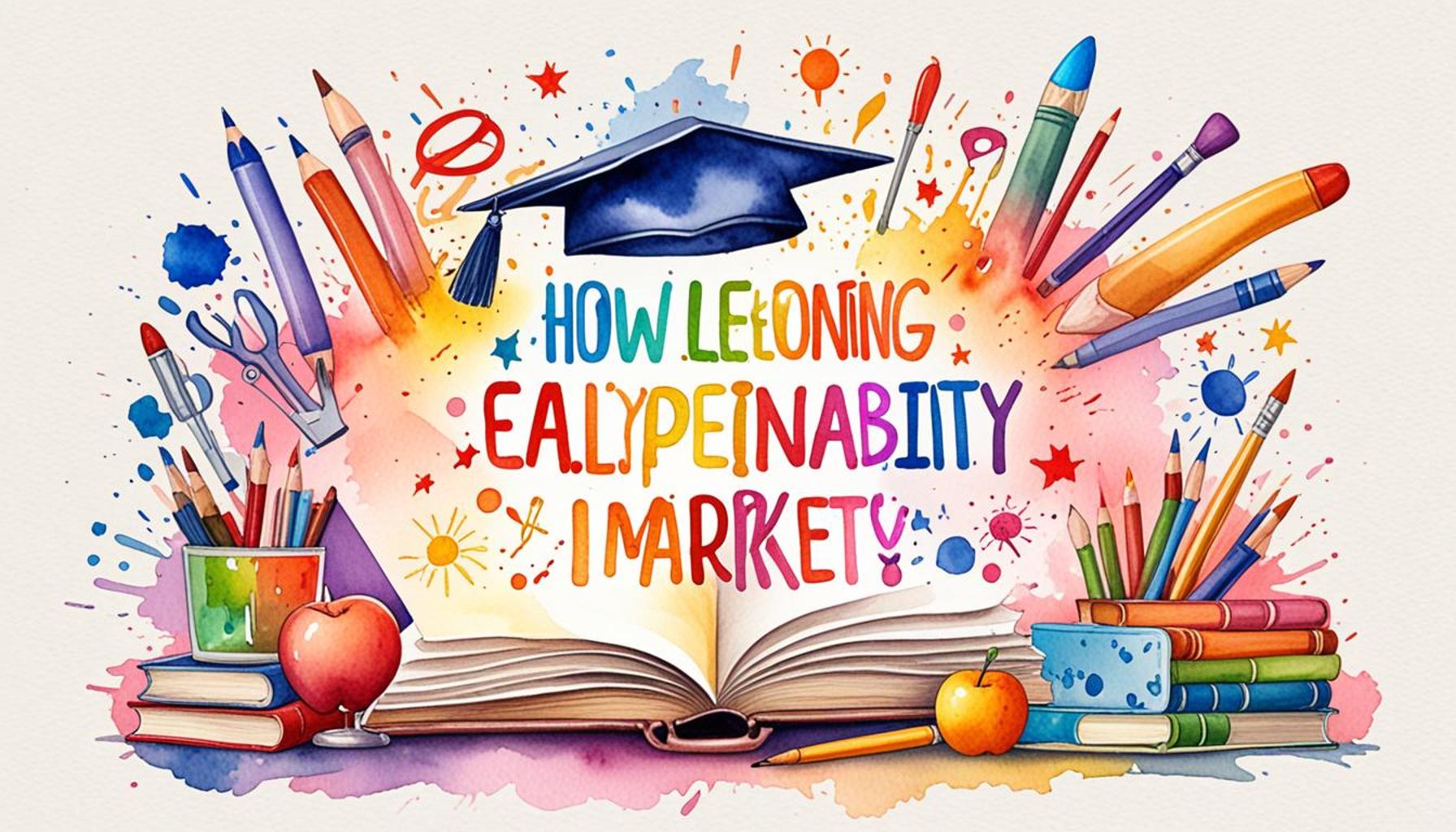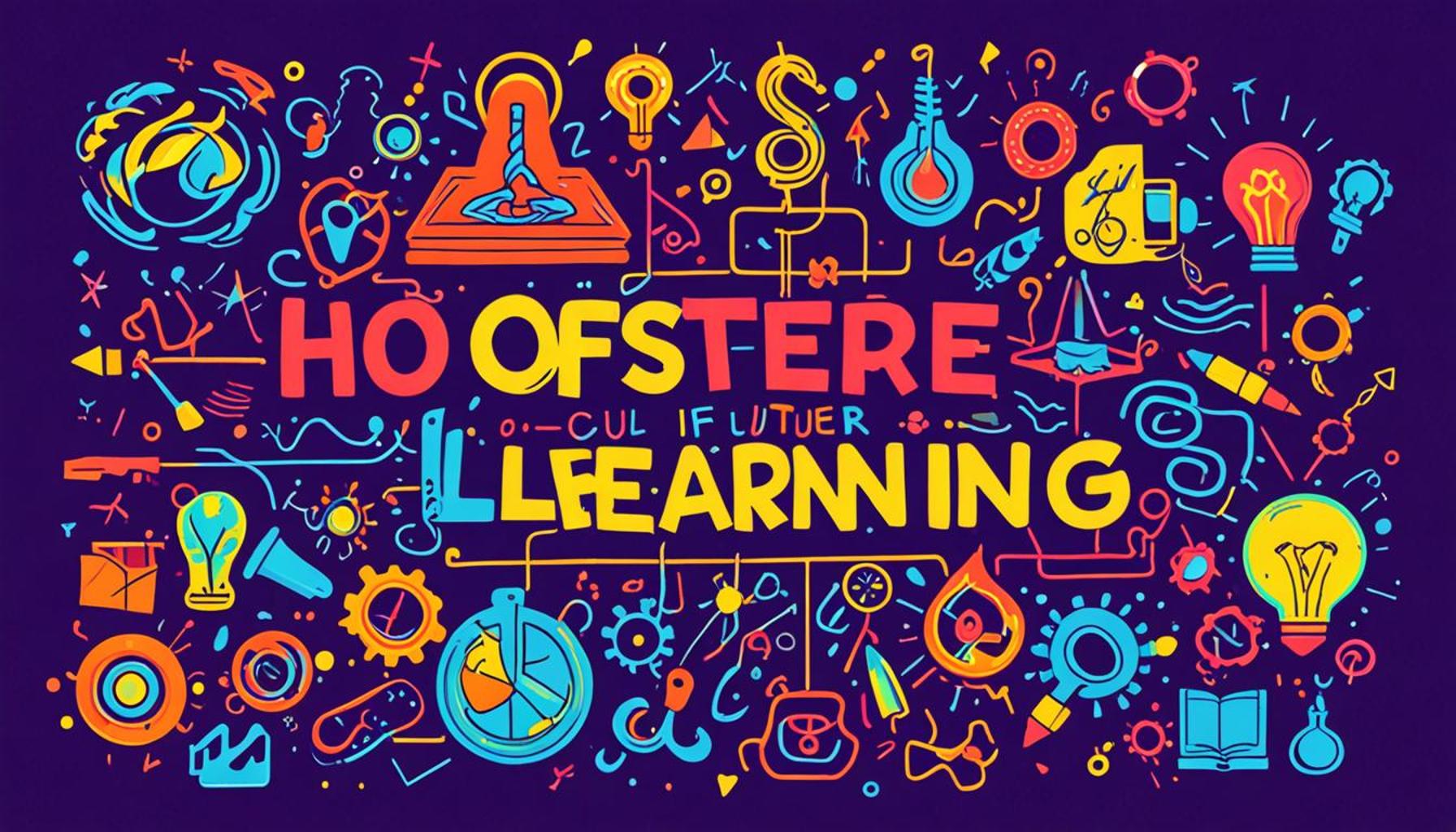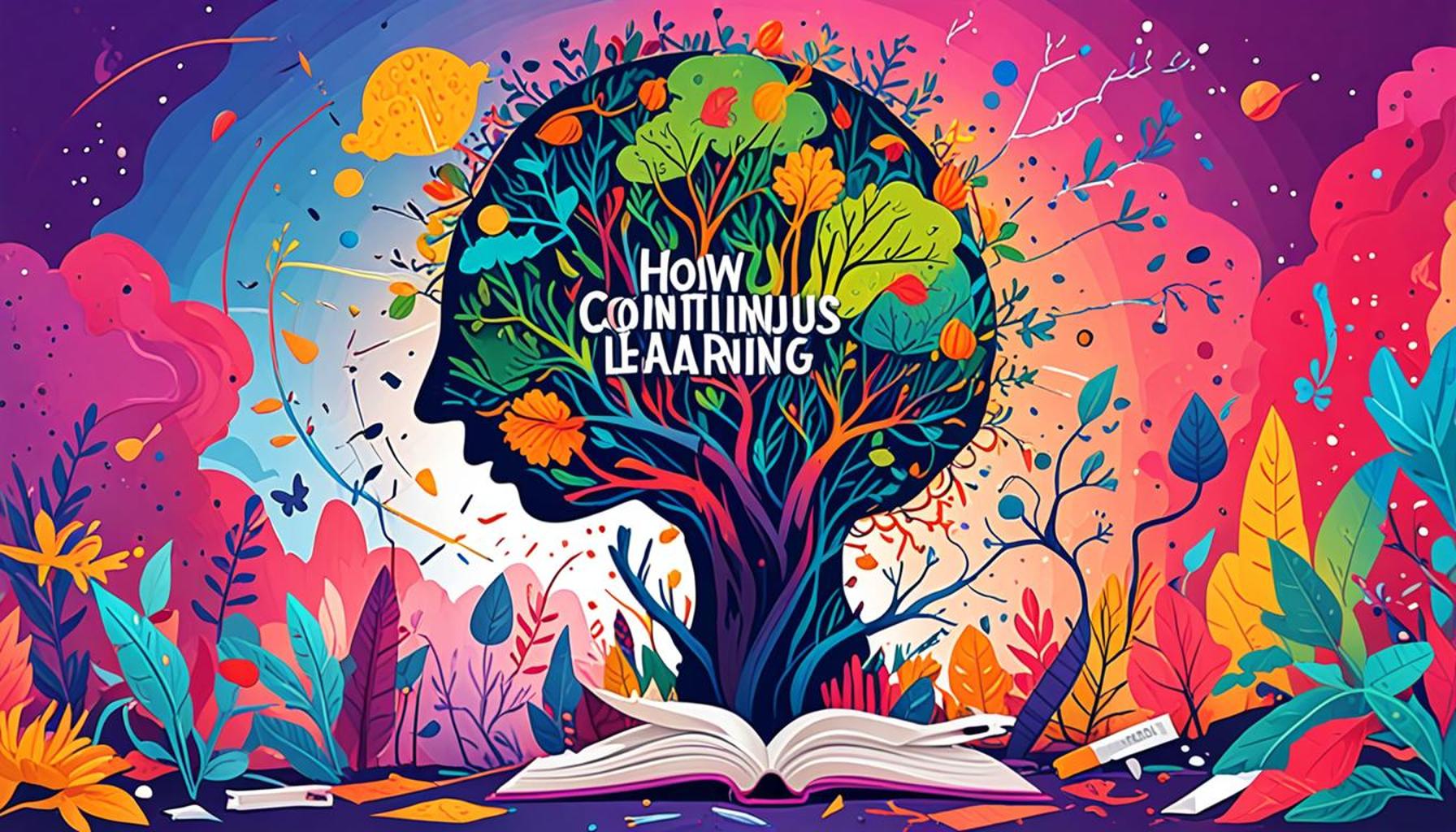Practical Strategies to Seamlessly Integrate Lifelong Learning Daily

Embracing a Lifelong Learning Mindset
In a rapidly evolving world, the concept of lifelong learning has become more pivotal than ever. This shift aligns with the principles of a growth mindset, where the belief in the ability to grow is fundamental to seeking knowledge and development. By integrating learning into our daily lives, we open doors to endless opportunities and adaptability.
The Importance of Continuous Learning
Understanding that learning never truly ends is essential for personal and professional growth. It enhances our skills, improves our problem-solving abilities, and keeps us competitive in the job market. Here are a few key points highlighting its relevance:
- Career advancement: Staying updated with industry trends
- Personal development: Cultivating new hobbies and interests
- Improved adaptability: Flexibility to navigate life changes
Preparing for Practical Strategies
This article will dive into a curated list of the top 5 practical strategies designed to help you seamlessly incorporate learning into your everyday routine. Learning doesn’t have to be overwhelming; it’s about making small, consistent changes that lead to significant growth. Let’s explore how to transform daily activities into valuable learning experiences!
LEARN MORE: This related article may interest you
Top 5 Strategies for Integrating Continuous Learning into Daily Life
In a world that thrives on innovation and rapid change, the importance of continuous learning cannot be overstated. With technologies and industries evolving at unprecedented speeds, skills can quickly become outdated. Continuous learning not only helps individuals keep up with these changes but also fosters personal and professional growth. By adopting a growth mindset, we can embrace learning as a lifelong journey rather than a destination. Here, we delve deeper into the top five strategies that can seamlessly integrate continuous learning into our everyday lives, thereby empowering us to thrive in a dynamic world.

5. Leverage Technology for Learning Opportunities
The digital age presents a wealth of opportunities to enhance our knowledge and skills conveniently and flexibly. Technology offers tools that make learning not just effective but also engaging and accessible, regardless of one’s location or daily schedule.
- Podcasts: These are a fantastic resource for those short on time. Whether you’re commuting, exercising, or doing chores, you can listen to a wide array of subjects, from science and technology to arts and culture. Popular platforms like Spotify and Apple Podcasts offer a myriad of choices that cater to varied interests.
- Online Courses: Platforms such as Coursera, Udemy, and edX provide comprehensive courses on topics ranging from data science to creative writing. Many of these courses are designed by renowned universities and industry experts, ensuring high-quality content and the possibility of earning certifications.
- Apps: Mobile apps like Duolingo make language learning being fun and interactive, while apps such as Skillshare allow you to explore a variety of skills from photography to entrepreneurship, accommodating learning styles that require short, focused sessions.
By incorporating these technological resources into your daily routine, you can transform idle moments into valuable opportunities for personal growth and skill enhancement. The key is to harness these tools to create an environment where learning becomes an ingrained habit, rather than an occasional pursuit.
4. Establish a Daily Reflection Habit
Consistent reflection is fundamental to embedding new knowledge and evolving ideas. By revisiting daily experiences, individuals can gain deeper insights and adapt their understanding accordingly. Reflection enables the consolidation of new thoughts and ideas, turning abstract concepts into relatable knowledge.
- Journaling: Maintaining a learning journal allows you to articulate daily experiences and insights. Writing about what you’ve learned helps solidify the information in your mind and makes it easier to recall later.
- Discussion Groups: Engaging with peers through discussions or book clubs can expose you to diverse perspectives. Conversations around new concepts can challenge your thinking and encourage a deeper engagement with the material.
- Mind Mapping: This technique helps visualize and simplify complex ideas, creating connections between different pieces of knowledge. It’s a powerful method for organizing thoughts and understanding relationships within the material you’re learning.
Through these practices, lessons are not just fleeting encounters with information but rather become part of your worldview, encouraging an active engagement with learning that is both reflective and expansive.
3. Make Learning a Family Affair
Turning learning into a family-oriented activity transforms it into a shared journey, fostering a culture of curiosity and lifelong learning among all family members. Family participation in learning not only reinforces relationships but also creates a supportive environment where everyone is encouraged to grow and explore.
- Family Game Nights: Incorporating trivia and educational games challenges family members to expand their knowledge across various topics. This fun approach to learning encourages healthy competition and collaborative problem-solving.
- Visit Museums: Regular visits to museums or cultural institutions open doors to new experiences and inspire discussions that broaden understanding and appreciation for history, science, and the arts.
- Book Sharing: Creating a family book club can be an enriching experience. Each member selects a book that interests them, and after reading, the family gathers to share thoughts and engage in discussions that deepen comprehension and insight.
By making learning collaborative and engaging, families can nurture a love for knowledge that transcends generations, imbuing future leaders with the curiosity and critical thinking skills necessary for future challenges.
2. Embrace Failure as a Learning Tool
Failure shouldn’t be seen as an endpoint but rather a stepping stone to further learning and development. When embraced correctly, failures are opportunities to understand one’s limitations and areas for improvement.
- Analyze Failures: Taking the time to dissect what went wrong and why allows you to learn from mistakes. Each misstep becomes an opportunity to gain insights and prevent similar issues in the future.
- Safe Experimentation: Creating environments where experimentation is encouraged helps reduce anxiety associated with failure. A culture that views attempts as part of a growth process invites innovation and creative problem-solving.
- Supportive Environments: Surrounding yourself with people who support your efforts fosters resilience. Encouragement and constructive feedback from peers reinforce the idea that failure is just a part of the learning curve.
This mindset ensures that learning is a dynamic process, where success is defined by improvement and persistence rather than mere perfection. It encourages taking calculated risks, leading to novel experiences and discoveries.
1. Cultivate a Growth-Oriented Mindset
At the core of continuous learning is a growth-oriented mindset, which is the belief that abilities and intelligence are developed through dedication and hard work. This mindset lays the groundwork for creativity, resilience, and ultimately higher achievement.
- Positive Affirmations: Regularly affirming your capacity to learn and grow can enhance mental resilience and boost confidence. These affirmations serve as a reminder that you have the capability to overcome difficulties and learn from them.
- Set Challenging Goals: Establishing goals that are both challenging and achievable encourages you to stretch beyond your comfort zone. This balance ensures motivation while reducing the fear of failure.
- Seek Feedback: Soliciting constructive criticism helps you refine your approach and perspective. Feedback should be viewed as a vital component of growth, offering insights that might be overlooked from a personal standpoint.
Embracing a growth mindset transforms challenges into opportunities and setbacks into lessons, fostering an environment where continuous learning is not only possible but also enriching and fulfilling.
By implementing these five strategies, you can effectively integrate continuous learning into your daily life. This commitment to lifelong education not only enhances personal satisfaction and confidence but also prepares you to navigate an ever-changing world with agility and insightfulness.
| Category | Details |
|---|---|
| Time Management | Implementing daily routines that allocate specific time for learning can drastically improve the retention of knowledge. Simple tools like to-do lists or digital planners can help structure your day around educational activities. |
| Micro-Learning Techniques | Utilizing bite-sized learning modules allows individuals to assimilate information without feeling overwhelmed. Online platforms and educational apps offer quick tutorials or lessons that can be completed in minutes, making it easier to integrate learning into daily tasks. |
| Community Engagement | Joining or forming study groups enhances learning by providing diverse perspectives. Engaging in discussions or collaborative projects allows for deeper understanding and can stimulate critical thinking. |
| Technology Utilization | Leveraging technology such as educational podcasts, webinars, and online courses can seamlessly incorporate learning into daily schedules. The flexibility of these mediums allows for adapting to any lifestyle, making it easier to keep learning. |
Continuing the exploration of practical strategies to integrate continuous learning into daily life, one key aspect is time management. By creating structured daily routines that prioritize learning tasks, individuals can find themselves making small yet meaningful progress. Allocating specific time slots for subjects of interest can transform mundane routines into fruitful learning experiences. The use of to-do lists and planners not only helps in keeping track of learning goals but also enhances motivation by providing a sense of accomplishment as tasks are checked off.Another vital strategy is the adoption of micro-learning techniques. With the fast-paced nature of modern life, bite-sized educational content can significantly reduce feelings of overwhelm. Educational apps and platforms are widely available offering concise lessons that can be completed in less than ten minutes. This approach caters to busy schedules and maximizes efficiency in learning sessions.Furthermore, community engagement emerges as a fundamental component of continuous learning. By becoming a part of study circles or forums, individuals can benefit from the collective knowledge present in such groups. Engaging with diverse opinions not only broadens understanding but also encourages the application of critical thinking skills. Shared knowledge can be a powerful catalyst for personal growth and skill enhancement.Lastly, the effective utilization of technology gives learners access to a plethora of resources that can fit seamlessly into their lives. From educational podcasts that can be listened to while commuting to webinars that can be attended from the comfort of home, the options for continuous learning seem endless. The significance of technology in education cannot be overstated; it has made learning not just accessible, but also quick and convenient.These strategies create a robust framework for embedding learning seamlessly into everyday life, allowing individuals to pursue knowledge at their own pace while maintaining their daily responsibilities.
ADDITIONAL INSIGHTS: Expand your understanding here
Frequently Asked Questions about Continuous Learning Integration
What are some simple strategies to integrate continuous learning into a busy daily schedule?
Incorporating continuous learning into a hectic schedule can seem daunting, but starting small is key. Consider dedicating specific time slots daily for learning, even if it’s 10-15 minutes. Microlearning, through podcasts or educational videos during commutes, is an efficient way to utilize idle times. Embracing digital platforms and apps that offer flexible learning materials can also help maintain consistency.
How can technology assist in maintaining a habit of lifelong learning?
Technology can be a powerful ally in lifelong learning, with a myriad of resources just a click away. Platforms like Coursera, LinkedIn Learning, and Khan Academy offer courses across various subjects. Additionally, setting up mobile alerts for favored educational newsletters or ebooks can ensure that learning materials are never out of reach, facilitating a seamless integration into daily routines.
Why is continuous learning important in today’s fast-paced world?
In a rapidly evolving global economy, continuous learning is crucial for staying relevant and competitive. It fosters adaptability, allowing individuals to acquire new skills and update existing ones, crucial for navigating changes within industries. Moreover, constant learning can contribute to personal growth, increased job satisfaction, and enhanced employability.
How can one overcome the common barriers to continuous learning?
Overcoming barriers such as lack of time, motivation, and accessibility involves strategic planning and resource utilization. Setting clear goals, manageable learning objectives, and celebrating small achievements can boost motivation. Leveraging community support through forums or study groups can also provide accountability and shared resources, making the learning journey smoother.
What role does mindset play in successful continuous learning?
The right mindset is pivotal for continuous learning success. Adopting a growth mindset, which emphasizes the belief that abilities and intelligence can be developed over time, encourages adaptability and resilience. This mindset not only fosters a more profound engagement with learning materials but also emboldens individuals to embrace challenges as growth opportunities rather than threats.
CHECK OUT: Click here to explore more
Conclusion: Embracing Continuous Learning in Daily Life
Integrating continuous learning into our daily routines is a transformative practice that fuels personal and professional growth. By implementing practical strategies, individuals can develop a robust habit of lifelong learning that aligns with the growth mindset techniques.
Main Takeaways
- Effective time management helps prioritize learning amidst busy schedules, ensuring that knowledge acquisition becomes an integral part of everyday life.
- Utilizing digital platforms and resources democratizes access to information, empowering individuals to explore new subjects at their convenience.
- Setting specific and achievable goals provides a clear direction, motivating continuous progress and making the learning process more focused and rewarding.
- The cultivation of curiosity encourages an open-minded approach to new ideas, fostering creativity and adaptability necessary for navigating changing environments.
- Seeking feedback and engaging with mentors or peers enhances understanding and provides crucial insights, reinforcing the shared journey of learning.
The importance of integrating continuous learning cannot be overstated. It aligns directly with the principles of a growth mindset, which emphasizes the belief that abilities and intelligence can be developed through dedication and hard work. By embracing learning opportunities, we foster resilience and adaptability, crucial traits in today’s rapidly evolving world.
Ultimately, adopting a continuous learning mindset not only enriches our personal lives but also enhances our professional capabilities. It leads us to new paths and perspectives, encouraging a culture of curiosity and innovation. As we seek to incorporate these strategies into our daily lives, we may find ourselves inspired to explore uncharted territories of knowledge and potential.


